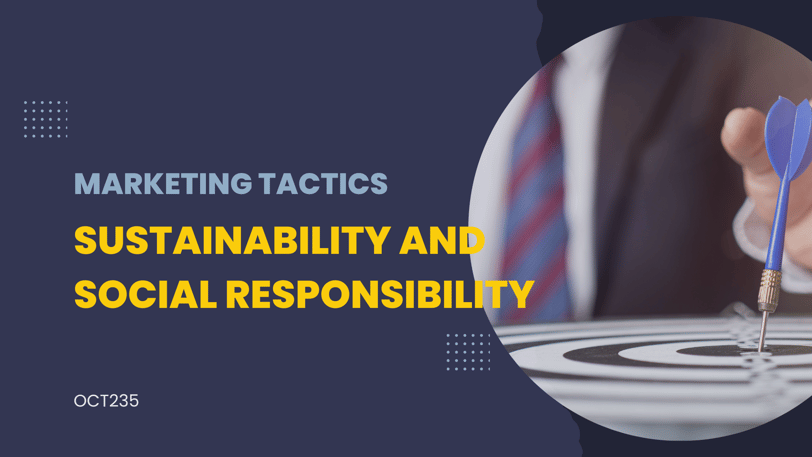Sustainability and Social Responsibility in Marketing
Sustainability and social responsibility in marketing


Sustainability and Social Responsibility in Marketing
Marketing is not just about selling products or services; it is also about making a positive impact on the world. Sustainability and social responsibility are two concepts that can help marketers achieve this goal. But what do they mean and why are they important for marketing?
Sustainability is the ability to meet the needs of the present without compromising the ability of future generations to meet their own needs. It involves balancing the environmental, social, and economic aspects of business activities. Sustainability in marketing means creating and delivering value for customers, stakeholders, and society in a way that preserves or enhances the natural and human resources that are needed for long-term prosperity.
Social responsibility is the obligation of businesses to act ethically and contribute to the well-being of society. It involves going beyond legal compliance and voluntary initiatives to address social issues and problems. Social responsibility in marketing means focusing on attracting customers who want to make a difference with their purchases, and offering products and services that benefit the community, whether locally, nationally, or globally.
Sustainability and social responsibility in marketing have many benefits for businesses, such as:
Enhancing brand reputation and trust. Customers are more likely to trust and support brands that demonstrate social responsibility and sustainability in their marketing practices. According to a report by Nielsen, 66% of consumers are willing to pay more for products from brands that show social commitment.
Increasing customer loyalty and retention. Customers are more likely to stay loyal and repeat purchases from brands that align with their values and beliefs. According to a study by Cone Communications, 87% of Americans will buy a product because its company advocated for an issue they cared about.
Improving competitive advantage and differentiation. Customers are more likely to choose brands that offer unique and meaningful value propositions that address their needs and preferences. According to a presentation by Forrester Research, 52% of U.S. consumers factor values into their purchase choices, seeking brands that proactively promote beliefs and values aligned with their own.
Driving innovation and growth. Businesses that embrace sustainability and social responsibility in their marketing strategies can discover new opportunities and markets, create new products and services, and improve their efficiency and profitability.
Some examples of sustainability and social responsibility in marketing are:
Using recyclable or biodegradable packaging, materials, or ingredients for products.
Promoting awareness and education on social or environmental issues or causes through campaigns, events, or content.
Donating a portion of profits or products to charitable organizations or efforts that support social or environmental causes.
Partnering with other businesses, NGOs, or communities that share the same vision and values for social or environmental impact.
Sustainability and social responsibility in marketing are not just trends; they are essential for the future of business and society. By adopting these concepts, marketers can create value not only for their customers, but also for their stakeholders, communities, and the planet.
